
Garden Revolutionaries

Contributor
- Topics: Garden Futurist, Headline
Spring 2024
A new social movement builds community with a focus on cultural relevance, intergenerational learning, and leadership development. Meet the garden revolutionaries.
I have the distant memory of going to see the resident botanist at the state university where I was educated as an undergraduate. I loved taking her plant physiology course and excelled, but when it came to advice on careers in gardening and horticulture, I received little to no advice. I became a taxonomist of marine invertebrates instead and then pursued a doctorate in education. It took me another 15 years before I came back to plants and realized it was, and always will be an innate and unfaltering passion. Today, I serve as a personal example of someone who, if given the proper early experience, could have been recruited to horticulture and gardening.
Growing up a person of color, I recognize many communities, especially immigrant communities, see botanic pathways as lacking inclusivity and career prospects. In short, no one I knew in my formative years was encouraged to be a gardener or pursue horticulture or farming. While I currently have the privilege of working in one of the largest public gardens in the US, I often wonder about my missed opportunities as a young student.
Header Image: Members of Sisterhood Gardens at a community day with the author on far left (San Francisco, CA). Credit: Sisterhood Gardens

As a young person, the connections between horticulture and its ability to influence issues of social inequity and environmental justice and strengthen connections to my culture were not apparent to me. However, eventually plant care and farming became a form of liberation for me. That is why you will often find me spending every spare moment in a public garden or teaching sustainable gardening. While my relationship with plants may have been deferred, I believe everyone should be given the opportunity to see how this garden work transforms the world in so many intersectional ways—especially young people.
A gap continues to grow between the developing workforce and a growing job market as older horticulturists and farmers reach retirement age. We have the opportunity to make room for revolutionaries to turn the tide of this industry. The good news is that these revolutionaries exist. They may look different on the surface, but underneath they are rooted in shared values and principles about how to prepare this next generation. These revolutionaries come in the form of institutions, partnerships, and people who are rewriting the future of horticulture, farming, and the landscape. By looking at these resources, developmental models abound for the cultivation of a new social movement of garden revolutionaries who focus on community building and foregrounding their training with cultural relevance, intergenerational learning, and leadership development.
Public gardens open the door to horticulture
When Emily Griswold, director of GATEways Horticulture and Teaching Gardens, started at University of California Davis 29 years ago, the campus arboretum was a separate entity from other campus units. It was focused solely on being a public garden and living museum of plants. Griswold reflected that the arboretum was on an “…ongoing quest as a university garden to make ourselves more valuable for the university.” One response to this need for integration was the UC Davis GATEways Project (Gardens, Arts, and The Environment). Developed in 2007 as a master planning framework, the UC Davis Arboretum and Public Garden envisioned the campus landscape as a “front door” into the campus, to welcome visitors, showcase creative work while highlighting complex issues that UC Davis sciences and scholars’ tackle. A major focus of the GATEways Project is linking programs to undergraduate learning with community engagement. The program partners with campus departments to create participatory student learning experiences and innovative leadership and service-learning internships, in which students plan and deliver outreach and education events for K-12 students and campus visitors. The university with its diverse student population holds the potential to recruit and support diverse candidates into the fields of horticulture and landscape design.


Within the ecosystem of the GATEways Project lives the Learning by Leading program.
The program serves approximately 150 students annually and is based on the assumption that students learn best by leading. In this service program, leadership skills and real-world experience combine to help students to address important environmental issues. Student interns gain leadership experience addressing a variety of environmental sustainability, restoration, and literacy issues by working in teams to solve real-world problems in the UC Davis Arboretum and Public Garden.
The GATEways Project participants are not required to have previous horticultural experience and come from a variety of majors. They can choose from several thematic strands to participate in during a quarter, yearlong, or summer experience. The themes include Ecological Land Management, Sustainable Horticulture, Plant Propagation and Nursery Management, and Urban Tree Stewardship. Students graduate from the program with experience in Central Valley gardening, which includes habitat restoration and landscape skills. They also receive transferable leadership and 21st-century professional skills. Students benefit from strong mentor relationships with staff experts and a new network of peers that are engaged in common environmental stewardship and climate goals.
Specialized education programs build knowledge and skills
Rachel M. Davis, the GATEways horticulturist, spearheads the Climate-Ready Gardening program, in partnership with the US Botanic Garden that is aimed at developing plants and climate change education (PLACCE). Davis describes the program as filling a critical need for participants. “One of the biggest challenges that we’ve been seeing, even before we started rolling out (the program), is being able to translate the science to something that is accessible. … We were observing a lot of climate anxiety with anyone that we talked to about climate change. One of the programmatic goals of Climate-Ready Gardening is to train people to talk about it.”
Davis leveraged an existing partnership with local UC Master Gardeners to create an intergenerational collaboration between her cohort of undergraduates and the experienced home gardeners. Learning by Leading interns often come with current understandings about science and ecology, and Master Gardeners come with applied horticultural skills. The cohort learns from campus scientists and horticulturists while also performing community outreach.

Davis notes the program also teaches vital communication skills for the interns and Master Gardeners alike. Undergraduates often come into the space not having confidence and skills to develop relationships to diverse groups. Davis noted that the Master Gardeners would often initiate the conversations. Through structured activities and modeling, undergraduate students began to develop skills in communication and build confidence to ask questions about horticultural practices from their Master Gardener peers. Some students grew up in cultures where casually speaking directly to your elders is not acceptable. By partnering with Master Gardeners the students increased their literacy about horticulture and learned to engage with a diverse age range of community members. Master Gardeners in turn realized that their explanations required new skills to make content accessible to younger audiences.
Many of the students in Davis’ cohorts are not coming from landscape or horticultural majors, so this creates new opportunities for them to explore careers in horticulture and public gardens. Davis herself made the switch from restoration ecology because “… no one had access to these restoration sites. And so there wasn’t much advocacy for managing natural lands, because people didn’t know why they were so cool.” She considers UC Davis Arboretum and Public Garden a unique hybrid space with demonstration gardens that are a little bit more wild, so she can talk about natural gardening. Davis’ ongoing mentorship and personal journey has become the opportunity for students to be inspired to pursue public gardens.
Read more about UC Davis GATEway Project Next: Pacific Plant People: Oak Corridors Plant Recommendations by Ellen Zagory
Emily Griswold is Director of GATEways Horticulture and Teaching Gardens at the UC Davis Arboretum and Public Garden (APG), University of California, Davis. She leads the GATEways Project (Gardens, Art and the Environment), an initiative to engage visitors with the academic work of UC Davis through the creation of innovative gardens and outdoor programs in partnership campus departments. Emily was interviewed by Saxon Holt and this article is a result of their conversation. >>Read More
One resource can provide a wealth of opportunities to build upon
More than 15 years since its establishment, Learning by Leading has demonstrated tangible success in diversifying horticultural pathways. Griswold explains that they actively recruit from the various affinity groups on campus such as the Native American Academic Student Success Center and the Center for African Diaspora Student Success. “We found, even just with our own staff, that this has been a pathway of increasing the diversity of our staff because we’re training up this diverse group of students. They have the job skills, we fall in love with some of them, and then we hire them on as career staff. So, it’s a mechanism for diversifying within your own program.” Noëlle Benitez, a recent alumni of UC Davis is an example of how the program increased recruitment and diversity in horticulture.

Benitez, who started in art, completed a degree in studio art and a minor in environmental horticulture. She now holds a position in the horticultural team at Filoli Historic House and Garden. She credits her success to Learning by Leading, which led to a position in the campus plant nursery, eventually becoming the coordinator for the nursery management and plant propagation internship. It was the inclusive environment at UC Davis that nurtured her ability to foster confidence and a growth mindset, “At (UC Davis Arboretum and Public Garden) I would be recognized for all my work that I’ve done, because I was leading the group, and I was really confident. I didn’t really think too much about being a minority which was really great. That was the first time that it’s ever happened.”
Benitez attributes her capacity to learn and effectively communicate with her peers, as well as her resilience, to Learning by Leading. She states, “I’m in this brand new position where sometimes I do feel a little bit under qualified sometimes, only because of how knowledgeable they (peers and supervisors) are, and how long they’ve been in the field. But I think that’ll just come with time and experience, and that that’s something that coming from UC Davis prepared me for. This next step is inevitable, I’m just going to have to keep going with it.”
Urban farming cultivates food, inclusivity, and good health
Zenger Farm promotes and educates about sustainable food systems, environmental stewardship, community development, and access to good food for all. The farm is a nonprofit urban and organic farm in East Portland, Oregon in the David Douglas school district. Located in a low-income area of Portland, and within blocks of an immigrant and refugee intake center for the State, the David Douglas school district hosts students who can collectively speak up to 15 different first languages. This culturally rich neighborhood can also come with unique challenges in terms of their programming.
One of their primary programs is their CSA (Community Supported Agriculture) program. Operating 22 weeks out of the year for local pickup and charged on a sliding scale, their goal is to get produce into the hands of the people who need it most. They operate on the Vegg Rx model, a concept that originated from Black communities in the South. Whole foods, especially produce, is seen as medicine and a way to change health outcomes. Zenger was so committed to this vision for healthcare that they also operate CSA Partnerships for Health, which brings together a broad coalition of farms, community organizations, and healthcare providers working to bridge the food and health systems. Their goal is to build a body of evidence that highlights that investment in local agriculture improves individual health and reduces healthcare spending.
During the 2023 season, Zenger delivered 300 CSA shares to participants of federally qualified health centers. This also allowed them to provide shares to predominantly people of color, many of whom may not qualify for Medicaid, based on challenges such as immigration status. Programs like this further build connections and relevance to families of color in the community and assists in recruiting local interns and volunteers within that community.
Alongside their CSA, Zenger Farm also offers a beginning farmer apprenticeship training that runs 7.5 months out of the year. Executive director, Rob Cato states “We are Intentionally focusing on folks who are under supported in farming and underrepresented in the way farming looks in the Americas.”
The training program has been running since 2010 and has graduated 48 apprentices, with 79 percent being women, non-binary, or people of color. Their goal is to shift the landscape of what farming looks like and who has access to land. This program is also rooted in equity and access to farm education. As Cato states “I think it’s different to provide access to (farm) education where you’re asking someone to show up for like 32 hours a week for free, or at a very low rate. It is not truly equitable access to education. That was a core value of the apprenticeship program was making it a fully paid apprenticeship with a livable wage for the city of Portland. And I think we’re still one of the few paid farm apprenticeships in the nation.”

Another important feature of the program is to focus on the history of farming in the US, and how labor was exploited and land was stolen and how that created the modern agricultural industry. Apprentices come away with an understanding of inherent inequities of land ownership, but are also given opportunities to celebrate and affirm diverse identities. Zenger encourages apprentices to cultivate “Pilot Gardens” during their training period. In this small scale plot, apprentices can explore cultural, medicinal, and/or ancestral food crops of interest to them. Allowing them to explore the skills of farming while affirming cultural connections in this space is part of the unique features of their program.
Breaking barriers to make way for thriving, diverse, and inclusive farms
Intergenerational work can also be socially and emotionally complicated. With recent efforts to diversify the Zenger Farm apprentice program, ensuring a new generation of farmers have culturally relevant mentors and access to land is challenging. Previously the majority of Zenger’s apprentices were white and came to learn the skills of farming because they have access to family owned land. Cato explains the history of Black Exclusion and its relationship to land access, “Oregon had a black exclusion law that was part of our constitution until 2002 … Oregon was qualified as a free State but the way they were actually able to keep Black folks out of the state was by putting lash laws and black exclusion laws into the constitution, which would say that (Black people) could only stay (on a piece of land) for 2 years. If you stayed here for longer than 2 years, you would get a whipping every month until you left … so folks didn’t stay. They obviously were not able to gain intergenerational wealth or land access. So what we see is that a bunch of new farmers, specifically farmers of color, are coming up in Oregon without deep roots.” This new generation of graduates also do not wish to work for majority white farmers in the region. As Cato explains “They don’t wanna go work on someone else’s property. Because they’ll feel like there’s a racialized dynamic or like a gender dynamic that’s going to be harmful to them.”


Now Zenger is focusing on helping this new diverse generation apply for grants, seek nonprofit status, and explore matching-fund opportunities such as Individual Development Accounts (IDAs) to start their own farms. Many of their graduates wish to become community-based farm sites. Kate Sams, development and communications director, admits entrepreneurial and leadership development is a growing need in their program’s training “We actually need to revamp our curriculum to be more responsive to this change.” She also likens it to returning to a deep generational way of farming, one that centered community and small farms at the heart of our food systems, “… I also go back to kind of like the intergenerational component of it, from the way I see farming is like more akin to like how we have been growing for thousands of years before … where folks were growing for communities … where they had access that was on small acreage. So really, I think it’s a lot of going back to the practices that are the practices of growing for thousands of years.”

Intergenerational communities growing together for the future
In 2012, after years of saving and simultaneously working two to three jobs each, my husband and I managed to scrape together loans for our first home in San Francisco, California. We chose a house that has smaller square footage than the back garden, we knew what mattered was space to grow. You are never in a buyer’s market here in this city, and we had hardly spent any time in this part of the city, which was known for being a border between a wealthy affluent neighborhood and a more diverse and violence prone section of our city. All we could do was hope for the best. Little did we know this choice would set our path to growing food, flowers, and community.
In 2014, San Francisco District 11 Supervisor John Avalos, the Department of Public Works, San Francisco Recreation and Parks, and the San Francisco Parks Alliance came together to propose an exciting and much-needed use for a 2+ acre parcel of unused land by the busy Brotherhood Way corridor in the Oceanview-Merced Heights-Ingleside (OMI) district. The vision was a sustainable gardening group called Sisterhood Gardens. The supervisor’s aide was a personal friend and invited us to be actively involved in the leadership of the garden.


This community project benefited from the leadership of the Chinese Progressive Association (CPA) from its inception. Founded in 1972, the CPA educates, organizes, and empowers the low-income and working-class immigrant Chinese community in San Francisco to build collective power with other oppressed communities to demand better living and working conditions and justice for all people. Sisterhood was CPA’s first and only food security project to benefit from their long-term stewardship.
One of the strengths in the development of Sisterhood Gardens is CPA’s focus on bilingual, interracial, and intergenerational inclusion in our work. With CPA’s community organizing and a few dedicated gardeners, we have served thousands of youth, elders, and families through our programs and the garden. Offering food, flowers, and free educational events, the garden attracted a diverse range of attendees and CPA would provide support for large work days and community events. No one is turned away and the garden is available to the general public 7 days a week.


District 11 is a neighborhood populated by majority elder first generation Asian immigrants and a dwindling Black American population. Through our programs and organizing efforts, we began to attract young people who were curious about gardening. In response, we offer two internship programs supporting high-school- and college-aged students called SOIL (Solidarity, Organizing, Intergenerational Learning through Youth Leadership) Stewards. SOIL stewards spend 6 weeks in the summer rooted in community building, garden stewardship, and environmental justice. Much like Learning by Leading, our program required the youth to work with elder gardeners, often traversing language differences to increase their collective knowledge about growing culturally relevant vegetables for our Asian elders who maintained food plots. Stewards learned about organic gardening practices and elders received support and community from their younger counterparts. Amy Huỳnh, Sisterhood’s Program Coordinator has reflected on “…how incredibly meaningful it has been to work alongside Cantonese speaking elders, neighbors of varying ages and cultural backgrounds and to build local neighborhood connections with other organizations & SF youth”. Amy was integral in mentoring our SOIL Stewards last year, including Kai, an intern for last year’s SOIL Stewards. Kai reflects that they have “learned to uplift the joy in the face of environmental doom and gloom to sustain our commitment to environmental justice, such as growing local food, talking with community and learning the peoples’ history”
Just like Zenger gardens, our young people are given explicit lessons on the long history of exclusion, redlining, and environmental burden in parts of our city, which leads to health disparities in our communities. SOIL stewards participate in activism and organizing to increase awareness about these issues. They work the land at Sisterhood and learned firsthand the benefits of growing organic food, planting for pollinators, and tending to our soil biome.

This special space is a haven for all. Post George Floyd and through the COVID-19 pandemic, our Asian and Black neighbors in the community did not feel safe. We had experienced a rise in violence on our elders, Sisterhood Gardens became one of the few safe places for communities to gather. We realized how important it was to have diverse representation at the gardens and to work hard to address inclusivity in all our programs and in our communications to the public. It is a sign of our success that I can no longer remember all the names of the young faces who come to our work days and programs, there are too many of them and we could not be more pleased. Sisterhood Gardens is a shining example of ways people are coming together to grow resilience, humility, and cultural relevance.
Collectively, UC Davis Arboretum and Public Garden, Zenger Farm, and Sisterhood Gardens, are paving the way to reach a new generation of gardeners, horticulturists, and farmers. Opportunities for young people to see the world of growing plants intertwined with liberation and revolution is invaluable. It is my hope that public gardens and farms continue to work toward this model of building inclusive culture, celebrating intergenerational knowledge, and building leadership development for the workforce of tomorrow.

This article was sponsored by:


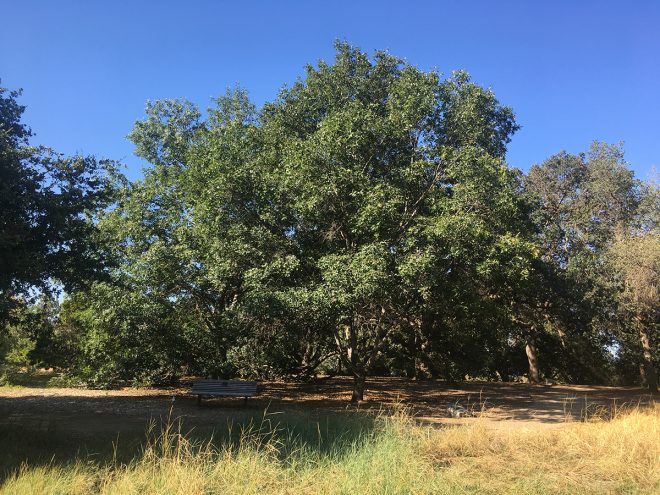

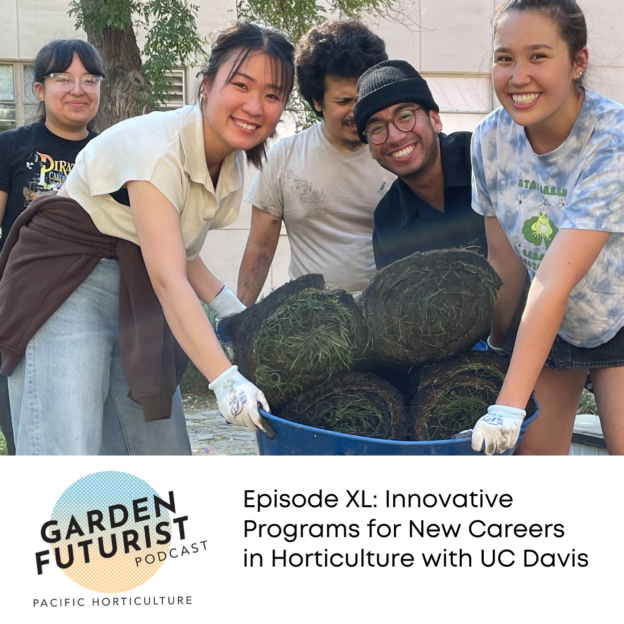
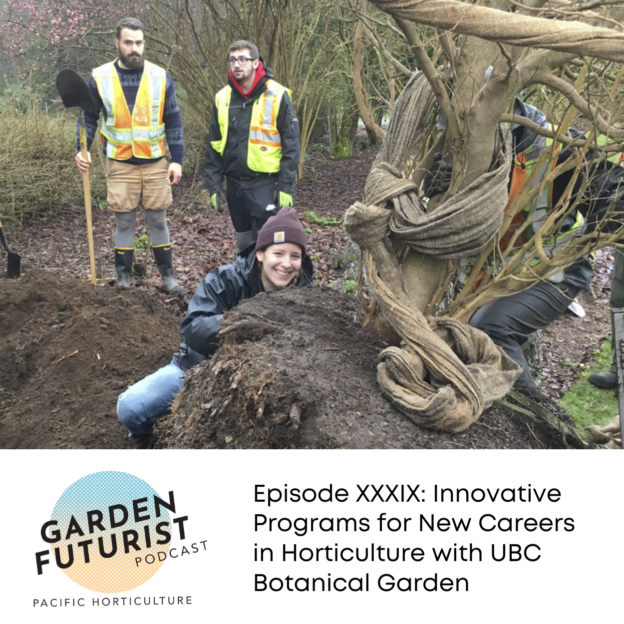
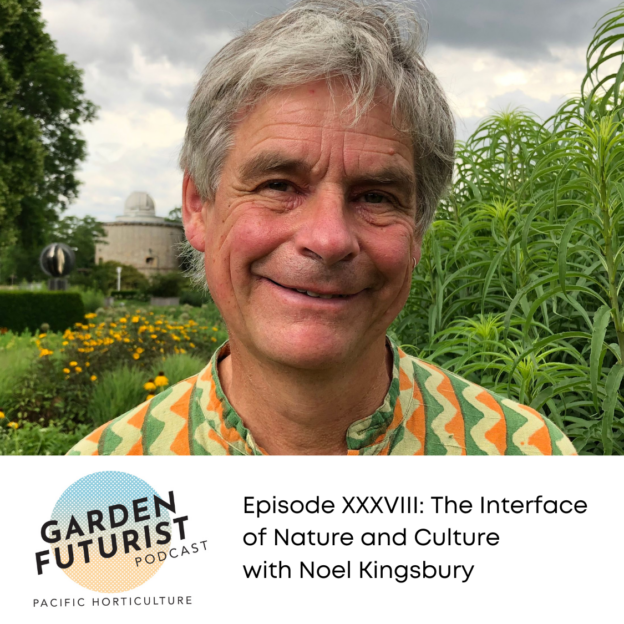
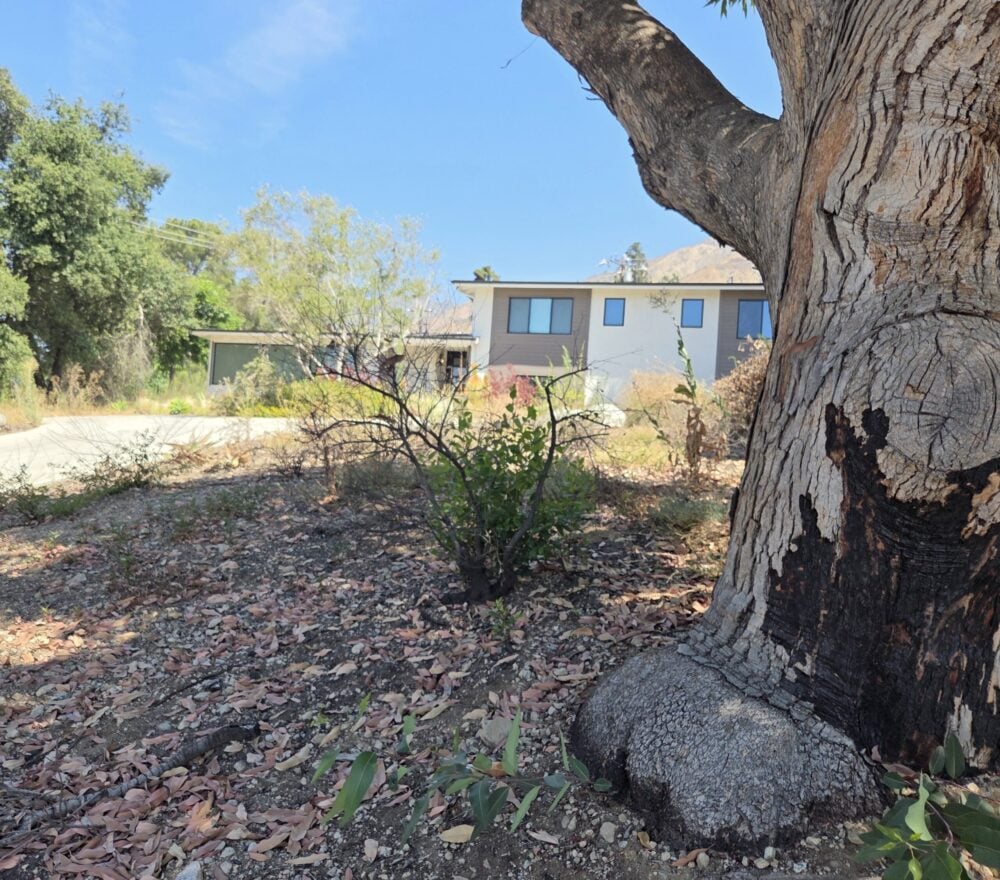
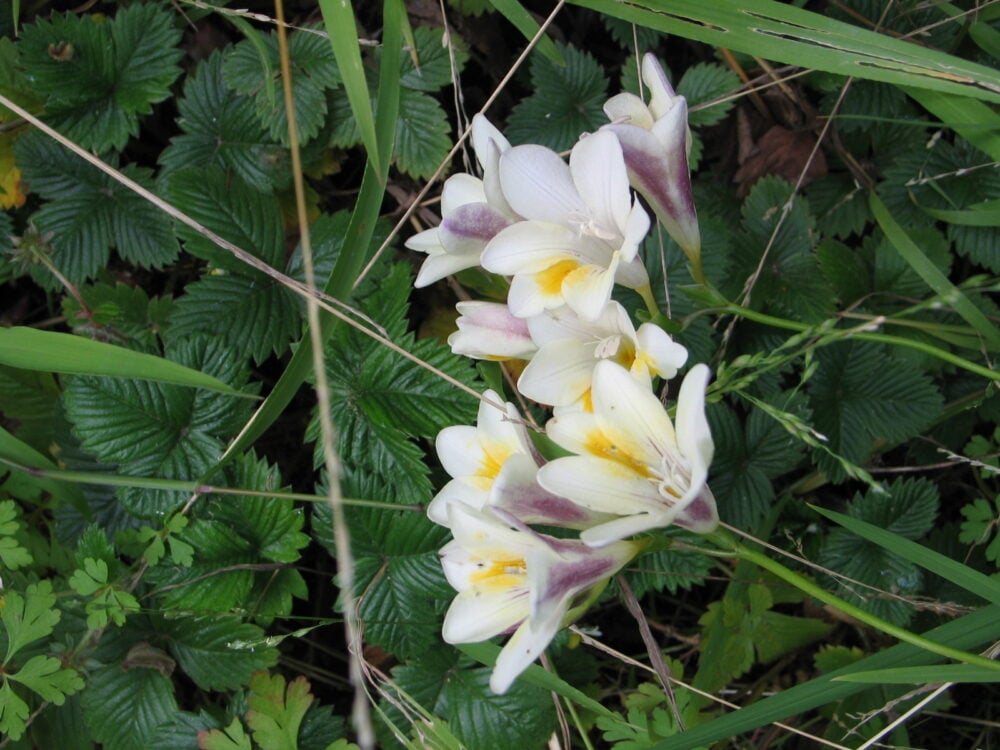
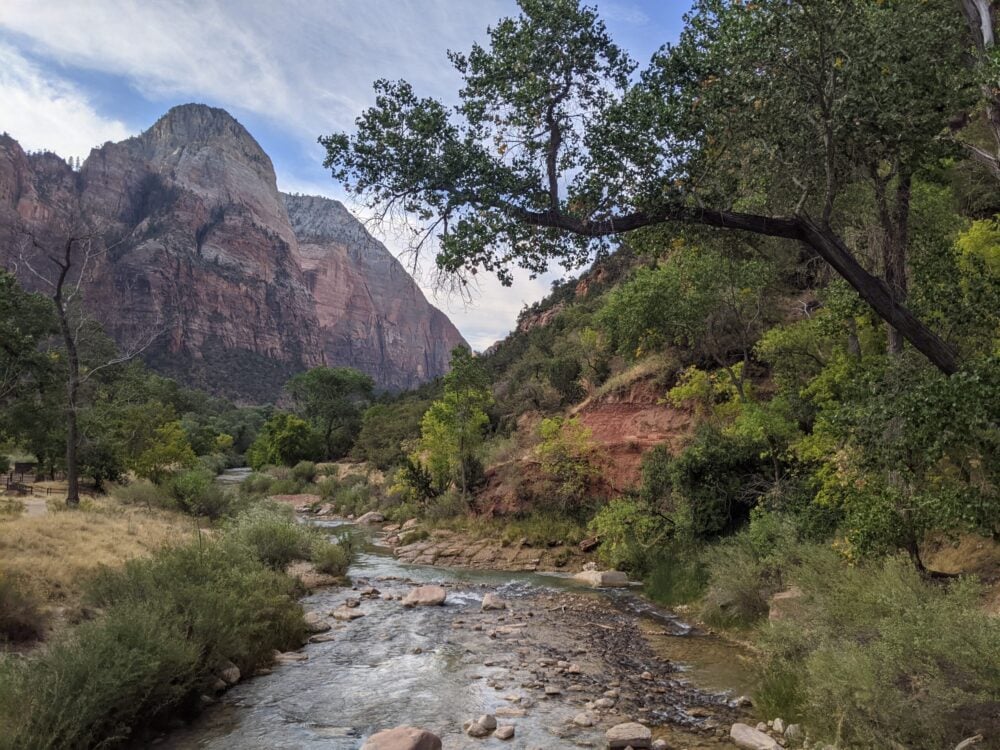

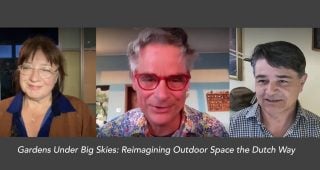
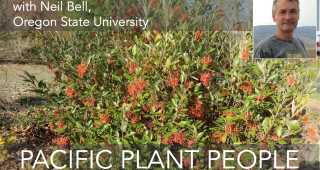
Responses